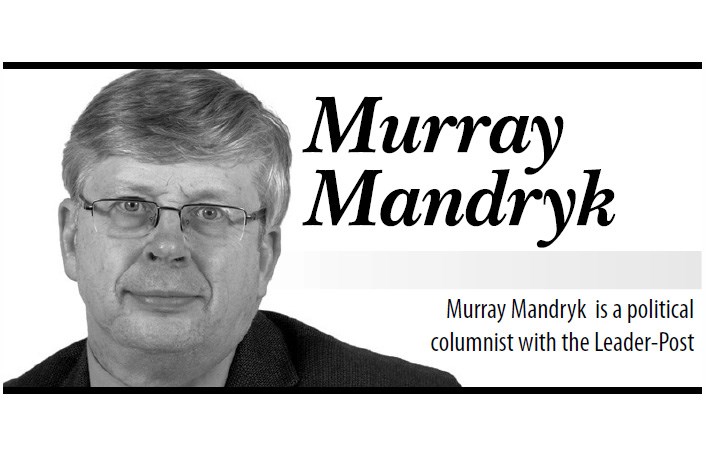It may have seemed harmless enough – or at least it was relatively harmless as budget updates showing a $292-million deficit go.
But Finance Minister Kevin Doherty’s 2014-15 Saskatchewan budget may be more problematic than it first seems for Premier Brad Wall’s Saskatchewan Party government.
This budget problem could very well reach deep into the 2016 election campaign, significantly limiting what both Wall and NDP leader Cam Broten can promise for the next four years.
And while that might seem an equal problem for both sides of the political spectrum a budget deficit – perhaps the first such acknowledged deficit in the past 20 years – is always a bigger political problem for the government that delivers it than the Opposition that criticizes it.
Besides that, the deficit reality is likely far bigger than Wall and the Sask. Party are letting on.
That said, Saskatchewan’s deficit still needs to be viewed in perspective – both in terms of the economic reality and politics. In both regards, fortune still seems to be smiling on Wall.
Politically speaking, Saskatchewan’s deficit was announced not only the same day the ’Riders fired both their coach and general manager (so you might not have even heard about the Saskatchewan deficit until now), but also the same day that the new Alberta NDP government announced its new budget deficit numbers.
By any comparison, Wall and the Sask. Party fare rather favourably. Doherty’s $292million shortfall (well, actually, it’s still really former finance minister Ken Krawetz’s budget) pales in comparison with his Alberta counterpart Joe Ceci’s deficit (well, actually the former Progressive Conservatives’ budget deficit) that was a whopping $5.9 billion in the red.
While the Alberta NDP government may be able to blame this one on the former Conservative administration, its election spending commitments mean that province won’t see balanced books until 2018-19.
Clearly, Alberta is more heavily reliant on the oil and gas economy, as Wall has always claimed. In fact, Ceci says his own budget (that won’t come until October after the federal budget) will be in deficit because of the need to diversify that the province’s economy.
But this notion that politicians can keep presenting deficit budgets and simply spend their way out of a recession – something that federal Liberal leader Justin Trudeau is advocating during this national campaign – is clearly a questionable strategy.
That said, it’s really what the Saskatchewan Party government is doing in this province, as well ... even if they aren’t admitting to it.
Doherty also pledged upon release of his first-quarter budget update that there would be no personal or income taxes used to balance the budget here and that his government would cut spending while still continuing to “provide vital services to Saskatchewan citizens.”
But that really doesn’t seem to be what his government is doing right now. You may recall that even as oil prices were declining last spring, the Sask. Party government budget was borrowing $700 million from the open market to cover infrastructure spending.
Like beauty, “vital services to Saskatchewan citizens” might be in the eyes of the beholder. Certainly, rural Saskatchewan residents might see services like the Saskatchewan Transportation Company (STC) buses or tax breaks on fertilizers and chemicals as more vital than city people do.
But by the same token, much of that $700 million in borrowing is going towards the start of a new bypass in Regina, the football stadium in Regina and a Children’s Hospital in Saskatoon. Vital spending? Perhaps to some, but maybe not quite so vital in a year where the deficit may be approaching a billion dollars.
Yes, when you add that $700 million in budget borrowing to the acknowledged $292-million deficit, the Saskatchewan 2014-15 budget’s real deficit approaches a billion dollars.
Like Alberta’s NDP, Brad Wall’s government seems to spending its way out of deficit.
And that may be a problem, come the spring election.




